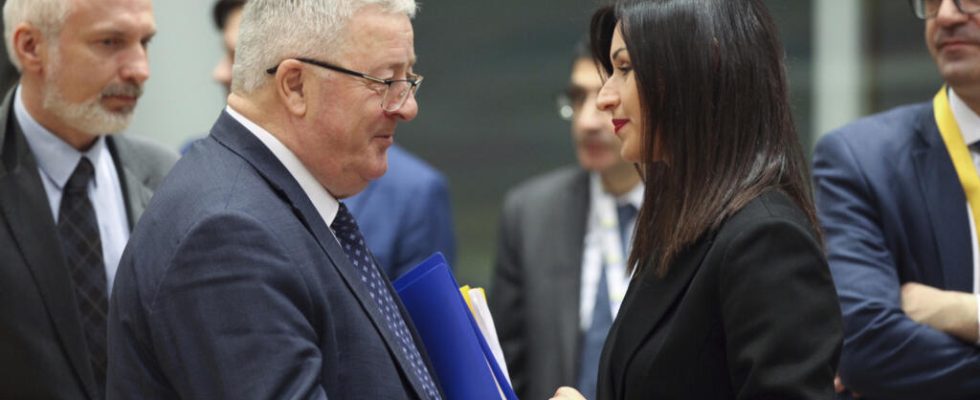Polish farmers demonstrated massively again this week in the streets of Warsaw and are maintaining pressure on both their government and the European Commission. Faced with the crisis, Polish Minister of Agriculture Czeslaw Siekerski is on the front line: he threatens kyiv to extend the embargo to all Ukrainian agricultural products… and he implores Brussels to help his country’s farmers.
This is undoubtedly the most serious crisis faced by Donald Tusk since his appointment last December. And, to confront it, the new Polish Prime Minister is counting on the man he appointed to the Ministry of Agriculture. Czeslaw Siekerski, 71, is a man of experience – as comfortable in the corridors of European administrations as with farmers. “ He has worked in the field of agricultural research since the 1970s », notes Vitaliy Krupin, economist at the Institute of Rural Development of the Polish Academy of Sciences, “and he did his thesis at the University of Life Sciences in Warsaw, so he is very knowledgeable about agricultural economics issues. Then he entered politics and when Poland became a member of the European Union, he was elected to the European Parliament several times. »
A useful course for negotiating with Brussels, but also for discussing the roadblocks formed by angry farmers. Because, since January, the agricultural crisis has continued to worsen, with Polish farmers increasing the number of blockages on the roads and especially on the Ukrainian border. “ It seems that everyone was surprised by the situation,” analyzes Vitaliy Krupin, “ and no one expected that these demonstrations are taking on such magnitudeso that the mobilization is as broad and active. At first, I think the government did not know how to react. Now it seems he has decided to side with the farmers. And when Czeslaw Sikierski visited Brussels this week, he echoed their demands, and said his government supported them. »
Technical solutions
In the Polish minister’s crosshairs is the European Green Deal, which Polish farmers decry – like their counterparts in other European countries. But above all there is the influx of Ukrainian agricultural products, which have been passing through Poland since the start of the war against Russia, as they have not been able to pass through the Black Sea as before. Products that arrive without customs duties – a decision taken by the European Union to support the Ukrainian economy, and which are accused of destabilize the Polish agricultural market. To remedy this, the new government formed by Donald Tusk is asking for two things: financial aid from Brussels to compensate for the losses of Polish farmers, and technical solutions to ensure that Ukrainian products only transit through Poland. “ The Polish head of government wants results and concrete decisions”, points out Krzysztof Soloch, professor at the Sorbonne and specialist in Eastern Europe. “ How can these transfers of Ukrainian food products through Polish territory be secured? There were several solutions: trucks which had to be sealed and which had to be secured using GPS beacons…. There was also the question of quotas which had to be put in place. »
Poland hopes to quickly reach an agreement with Ukraine on these issues. This will be the whole point of the meeting which is to take place at the end of the month between Donald Tusk and Volodymyr Zelensky. Time is running out because, if the Polish government ensures that diplomatic and military support for Ukraine is not impacted by this agricultural crisis, within the Polish population, on the other hand, a certain weariness is beginning to emerge. “ At the start of the war two years ago, more than 72% of Poles were in favor of welcoming Ukrainians into their home and today it is only 52%. So, we are seeing an erosion within the Polish population. » And then the new Polish government will soon face very important local elections… and of course the European ones in June. Donald Tusk’s Civic Coalition is hoping for a good result, building on its victory in the legislative elections, but the agricultural crisis could cost it votes. For the benefit in particular of the Confederation, the far-right Polish party which hopes to benefit from this peasant anger at the polls.
Read alsoIn Poland, the agricultural revolt against products from Ukraine continues
